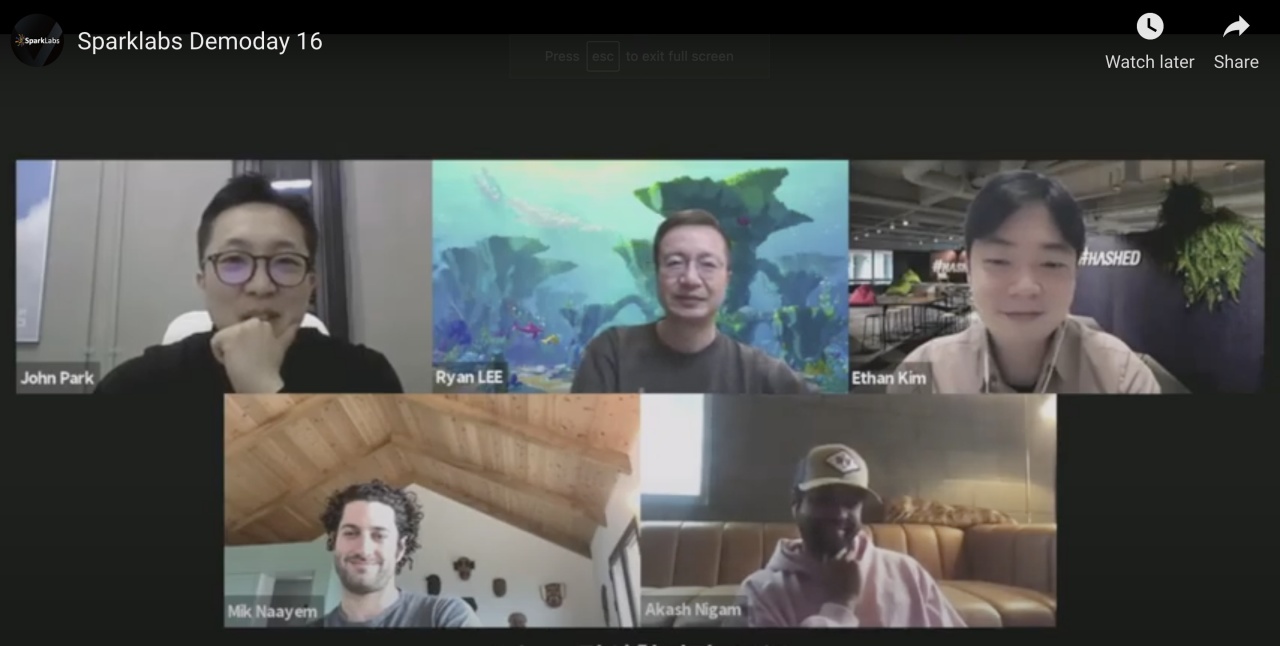NFT to stick around with support from wider population: experts
By Park Ga-youngPublished : April 30, 2021 - 21:12

Nonfungible tokens, widely known as NFTs, will survive a second wave and, even more, thrive as the public increasingly embraces this digital asset that has become more understandable and tangible, advocates said.
Gathering for a panel session held by accelerator SparkLabs, industry experts from the US and Korea said Thursday that, unlike in 2017, there are more use cases of NFTs and people adopting their use.
First appearing in 2014, an NFT is a blockchain-based nonduplicable digital certificate of asset that represents real-world objects like art and music.
“We now have the infrastructure to make it really accessible for regular people to interact with blockchain,” Mik Naayem, co-founder and chief business office at Dapper Labs, said in the panel session. In 2017, Dapper created blockchain game CryptoKitties, in which players purchase, collect, breed and sell virtual cats. In 2020 he introduced NBA Top Shot, a NFT marketplace for digital pro basketball cards.
Naayem said, “this time feels more real,” as NFT feels more understandable and tangible for regular people.
Teenagers might not understand the concept of NFTs or a metaverse -- a collective virtual world -- but younger generations who are already used to buying and selling game characters online are more prone to embrace the new technology, according to Akash Nigam, co-founder and CEO of avatar technology company Genies.
Nigam predicted that there will be more and more influencers and businesses as well as their fans making the foray into NFTs as they reinvent themselves in a metaverse.
Co-founder of the first crypto fund in Korea, Hashed, Ethan Kim, said there are untapped but promising areas in NFTs.
Though it is still art-heavy, NFTs will be visible in various fields such as entertainment or finance, they said.
One way for them to be used is in intellectual property protection, Kim said.
Just like the software industry, “intellectual property will experience huge change through NFT which is implemented on top of blockchain and smart contracts,” Kim noted. “It is open to everyone and anyone can subscribe to NFT which holds IP. It will be useful to make revenue share by using smart contracts and distribute the revenue to both original IP holders and content creators who used the IP,” Kim added.
Based on a specific intellectual property, content creators could create a huge and creative metaverse, according to Kim.
By Park Ga-young (gypark@heraldcorp.com)









![[Hello India] Hyundai Motor vows to boost 'clean mobility' in India](http://res.heraldm.com/phpwas/restmb_idxmake.php?idx=644&simg=/content/image/2024/04/25/20240425050672_0.jpg&u=)









